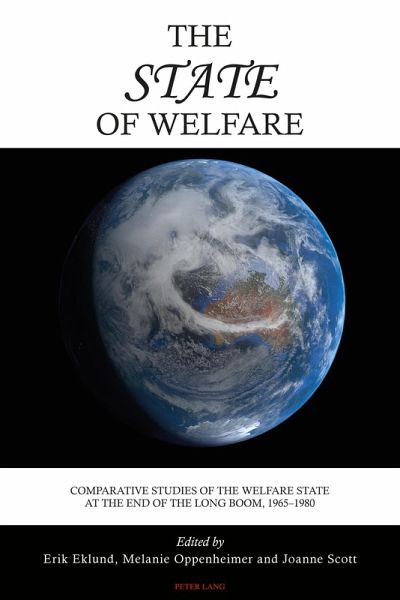
The State of Welfare (eBook, ePUB)
Comparative Studies of the Welfare State at the End of the Long Boom, 1965-1980
Versandkostenfrei!
Sofort per Download lieferbar
Statt: 70,50 €**
54,95 €
inkl. MwSt.
**Preis der gedruckten Ausgabe (Broschiertes Buch)
Alle Infos zum eBook verschenkenWeitere Ausgaben:

PAYBACK Punkte
27 °P sammeln!
The period after 1945 saw a rapid growth in social welfare, with the state taking on increasing responsibility for pensions, health care, unemployment relief and income support. In Western democracies economic growth underpinned state investment and was reinforced by demands from the new social movements of the 1960s. Just as the clamour for reformism reached a crescendo in the late 1960s, the global economy began to falter, culminating in the oil crisis of 1973-1974.This volume explores the factors that shaped the trajectories of welfare state change over this crucial period. A close analysis...
The period after 1945 saw a rapid growth in social welfare, with the state taking on increasing responsibility for pensions, health care, unemployment relief and income support. In Western democracies economic growth underpinned state investment and was reinforced by demands from the new social movements of the 1960s. Just as the clamour for reformism reached a crescendo in the late 1960s, the global economy began to falter, culminating in the oil crisis of 1973-1974.
This volume explores the factors that shaped the trajectories of welfare state change over this crucial period. A close analysis of countries such as Australia, Canada, New Zealand and the United Kingdom reveals signs of a broader shift towards the decline of government spending and the first tentative moves towards a nascent neoliberalism. Other countries, such as Sweden and West Germany, remained comparatively untouched by the economic crisis and even sought to reinforce their welfare state in response to it. Ireland and Northern Ireland also showed little evidence of these changes, isolated as they were by complex political and religious factors. This book brings together a range of case studies at both country and provincial level in order to build up a more complex and nuanced picture of the welfare state in the 1960s and 1970s.
This volume explores the factors that shaped the trajectories of welfare state change over this crucial period. A close analysis of countries such as Australia, Canada, New Zealand and the United Kingdom reveals signs of a broader shift towards the decline of government spending and the first tentative moves towards a nascent neoliberalism. Other countries, such as Sweden and West Germany, remained comparatively untouched by the economic crisis and even sought to reinforce their welfare state in response to it. Ireland and Northern Ireland also showed little evidence of these changes, isolated as they were by complex political and religious factors. This book brings together a range of case studies at both country and provincial level in order to build up a more complex and nuanced picture of the welfare state in the 1960s and 1970s.
Dieser Download kann aus rechtlichen Gründen nur mit Rechnungsadresse in A, D ausgeliefert werden.













